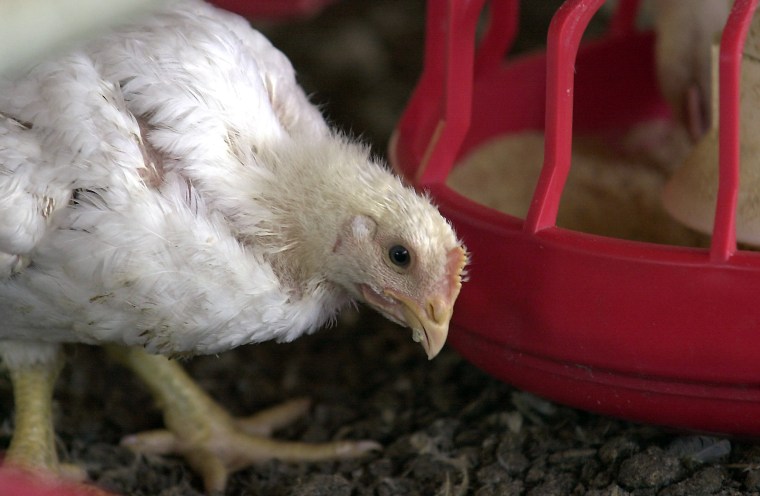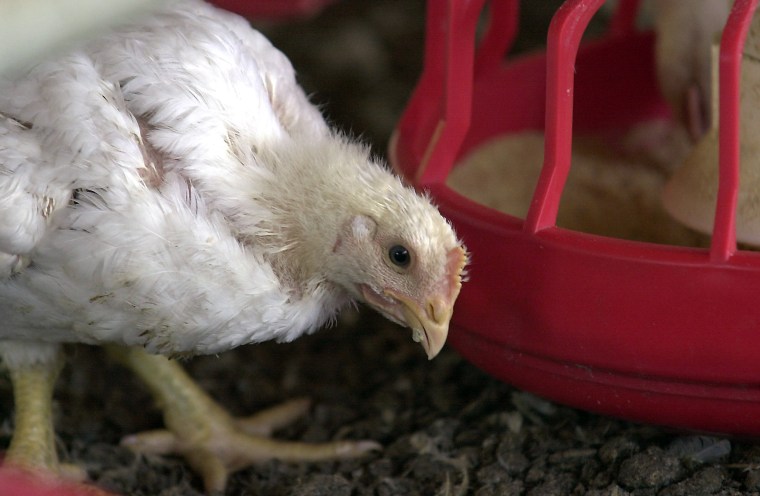
At least nine inmates at a Tennessee jail have been sickened by salmonella detected in a paste-like chicken product sometimes known as “white slime,” part of an outbreak that may have affected people in 13 states.
Two of the inmates at the Bradley County Jail in Cleveland, Tenn., have been hospitalized in the outbreak of Salmonella Heidelberg linked to mechanically separated chicken produced by Tyson Foods of Sedalia, Mo., according to the Centers for Disease Control and Prevention.
The U.S. Department of Agriculture’s Food Safety and Inspection Service was notified in December of an outbreak of salmonella infections from Nov. 29 to Dec. 5. Tyson officials recalled nearly 34,000 pounds of mechanically separated chicken sent to institutions on Jan. 10.
Epidemiological and traceback investigations found that the illnesses were probably linked to the chicken. Mechanically separated meat is a paste-like product made by forcing beef, pork, turkey or chicken through a sieve or other device to separate the bone from the edible meat tissue. The paste is then formed into foods like fully-cooked lunch meat and hot dogs.
A beef process that turns bits and pieces of meat into a similar paste — using a different method — creates products that have been dubbed “pink slime,” by critics. By extension, some refer to the chicken, pork, lamb and turkey products as “white slime.” Chicken industry advocates note that the mechanically separated products must be labeled as such and that they're not sold directly to consumers.
Tyson officials emphasized that the product was sold for institutional use nationwide, and was not available for purchase in grocery stores. The products were sent to institutional customers with distribution centers in eight states: California, Florida, Indiana, Kansas, Nevada, New Jersey, Ohio, and Wisconsin.
The strain of Salmonella Heidelberg detected in the outbreak is common, CDC officials said. Nineteen additional people infected with the same strain have been identified from 12 other states between Oct. 22 and Dec. 5. State and federal health officials are working to determine whether these cases are related to the Tennessee correctional facility.
CDC officials said they would not release the names of the states until it’s determined whether they’re part of the outbreak.
JoNel Aleccia is a senior health reporter with NBC News. Reach her on Twitter at @JoNel_Aleccia or send her an email.
